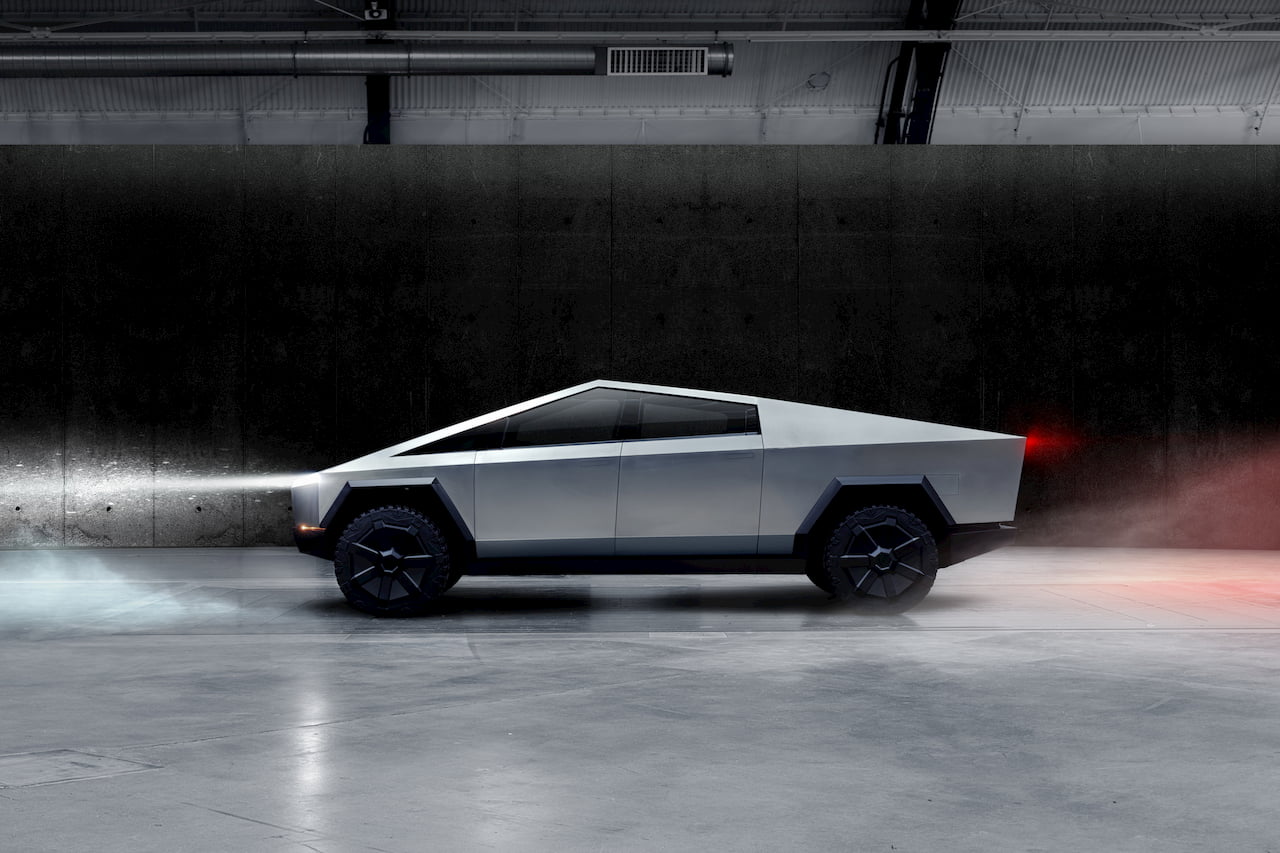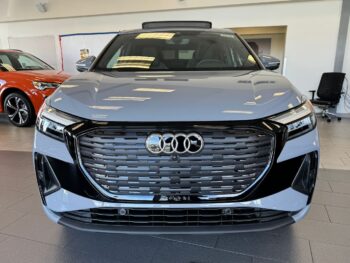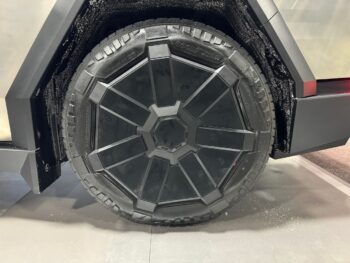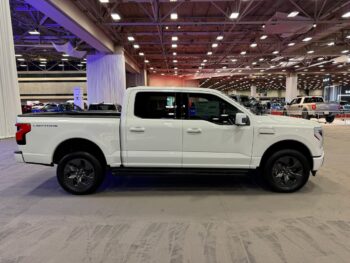Update: All section updated with Q1 2022 sales figures and latest market cap values.
We’re no longer in an era where EVs belong to the distant future. Carmakers across the globe have embraced the transition towards electric vehicles. Listed below are the world’s largest electric car companies, which have taken a substantial lead over the others in the journey towards carbon-neutral mobility.
Going by the sales trends, 2021 was a tremendous growth year for the EV market, with Tesla dominating the charts. While the American EV maker is far ahead in terms of sales and market value, automakers like SAIC, BYD, Volkswagen Group, and Hyundai Motor Group also offer competitive electric vehicles across different segments.
Let’s delve deep into the world’s largest electric car companies:
Tesla
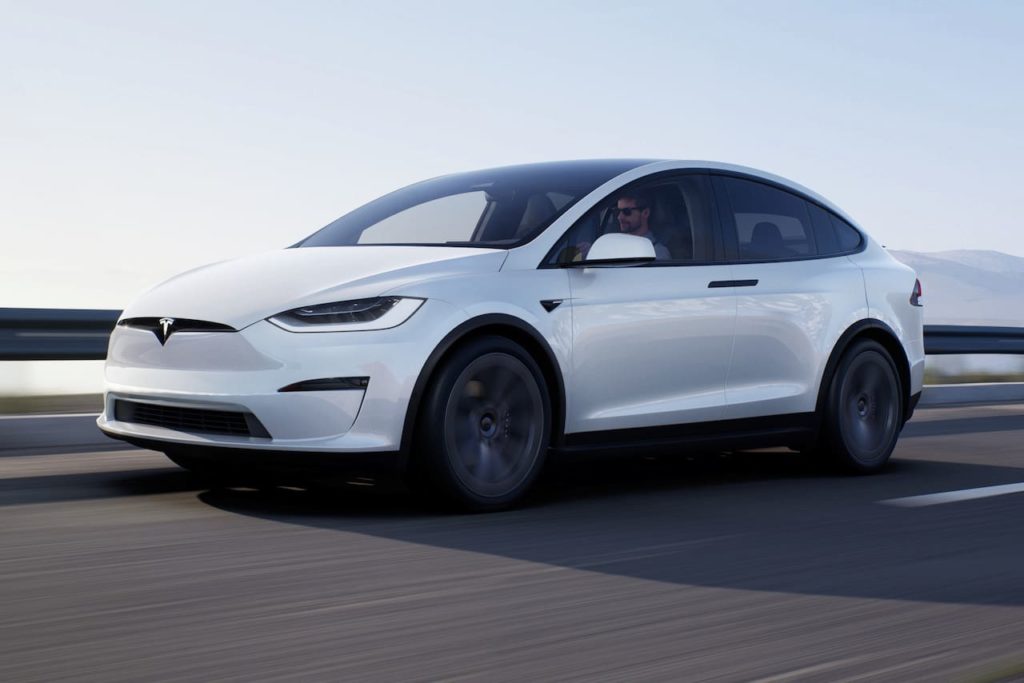
Tesla, though incorporated in 2003, is still in its teens, but it’s outperforming the auto industry’s oldest players. CEO Elon Musk’s foresight has made Tesla the world’s largest electric car company in sales and the largest automaker by market value. In October 2021, Tesla hit a market cap of USD 1 trillion, more than the combined valuation of five of its closest competitors: Toyota, VW, Daimler, GM, and Nio. Its valuation has fallen since then, and as of June 9 2022, Tesla is valued at USD 728 billion.
The Gigafactories
Tesla laid the foundations early. The Model 3 sedan went on sale in 2017, and the brand inaugurated the first Gigafactory in Sparks, Nevada, which manufactures Tesla batteries and EV components. Tesla developed capable powertrains for its S.3.X.Y model range and built a robust supercharger network of more than 30,000 across the United States to make electric cars appealing. Tesla installs six new superchargers every week in the U.S. market.
In the first week of the Model 3’s announcement in 2016, the brand garnered 325,000 reservations. Since then, the sky has been the limit. Currently, Tesla has give Gigafactories — Giga New York in Buffalo, Giga Shanghai for the Chinese market, and the original Giga Nevada. The latest additions are Giga Berlin and Giga Texas.
Cool features like Ludicrous mode and Autopilot
Teslas are exciting. The interior is minimalist, with a large central touchscreen housing most functions. The Ludicrous Mode rockets the Tesla Model S from 0-60 mph in just 2.5 seconds. The Tesla Model X has gull-wing doors, while the Model 3 and Y bring incredible value to early EV adopters with relatively affordable price tags. All of them come with Tesla’s Autopilot Level 2 autonomous driving system. The system uses 360-degree cameras, visual processing up to 250 meters, and has 12 ultrasonic sensors.
According to Tesla’s vehicle safety report, for Q4 2021, there was just one crash for 4.31 miles driven. Tesla’s ADAS systems and Autopilot are trying to make the roads safer.
Global EV sales leader
Despite the semiconductor shortages and the pandemic, Tesla customers’ excitement remained unfettered. In 2021, the brand reported 936,172 deliveries, the highest for any EV maker in the world. Model 3 and Y spearheaded this charge with combined sales of 911,208 units worldwide—the more expensive Model S and X combined for 24,964 deliveries.
The brand also posted strong Q1 2022 sales results, outperforming all premium carmakers in the United States. Tesla sold 310,048 units in Q1 2022, clocking a sales growth of more than 40% compared to Q1 2021, when the brand delivered only 184,800 units. The Model 3 and Y continued to lead the sales charts with 295,324 units sold combined.
Tesla models: S, 3, X, Y, Roadster (2024), Cybertruck (2023), and Semi (2023)
Q1 2022 BEV sales: 310,048
Market cap: USD 728 billion (June 2022)
SAIC Motor
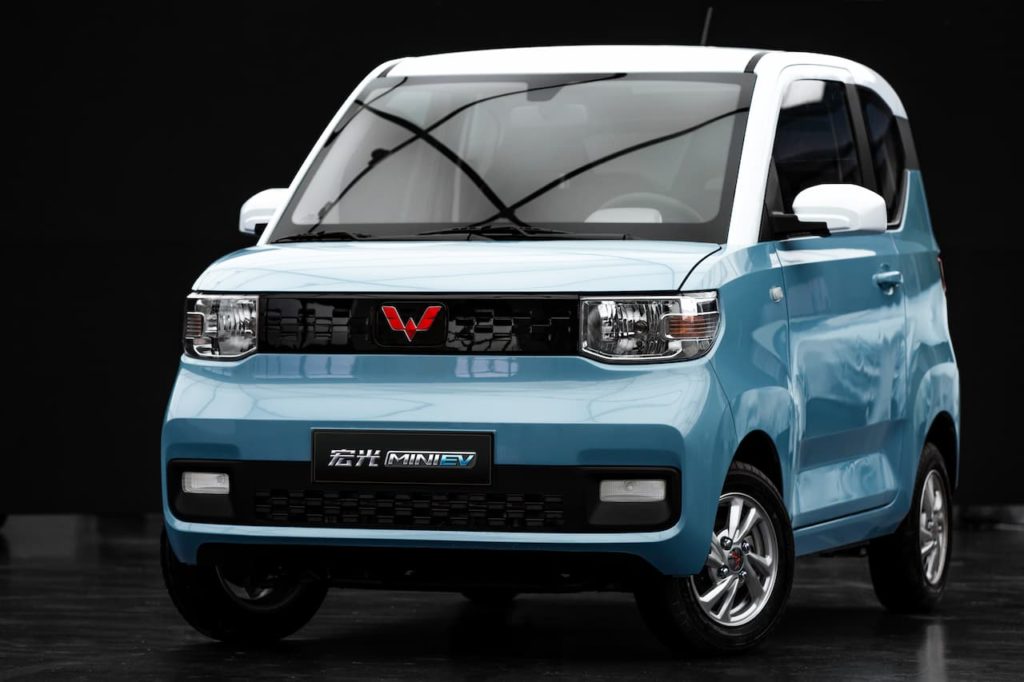
SAIC Motor or the Shanghai Automotive Industry Corporation has been the largest carmaker in China for 16 years straight regarding volumes sold. In 2021, the group sold 5.81 million cars in China; 732,646 were NEVs, making it one the world’s largest electric car companies. Its subsidiaries MG Motor and Maxus sold more than 50,000 new energy vehicles in Europe, Australia, and New Zealand. In the first five months of 2022, the group has sold 1.75 million vehicles globally, of which 301,451 were new energy vehicles (BEV, HEV, PHEV and FCEV).
With MG Motor and Maxus, SAIC already has a strong presence in Europe. The group said in February 2022 that it plans to sell 120,000 vehicles in Europe under the MG Motor and Maxus brands. Europe will be SAIC’s first overseas market with over 100,000 sales if it achieves this target. According to the brand’s records, 679,000 vehicles were sold outside of China last year, and it claims that SAIC Motor makes one of every three Chinese cars sold abroad.
Its subsidiary Maxus has already emerged as a more popular electric van brand internationally, selling 52,000 electric vans in 2021. The Maxus eDeliver3 and eDeliver9 vans impress on paper, with over 200 miles of range and a payload capacity of 945 kg and 1,290 kg, respectively. SAIC-GM-Wuling Automobile’s (SGMW) Wuling Mini EV city car is also sold in Europe, with Lithuania as its first market. It is sold in Lithuania under the Freze Nikrob EV moniker and is locally assembled by Nikrob UAB.
SAIC EVs: MG ZS EV, Wuling Mini EV, Maxus MIFA 9, Euniq 6, and more
January-May 2022 (YTD) sales: 301,451 (New Energy Vehicles)
Market cap: USD 31.2 billion (June 2022)
Volkswagen Group
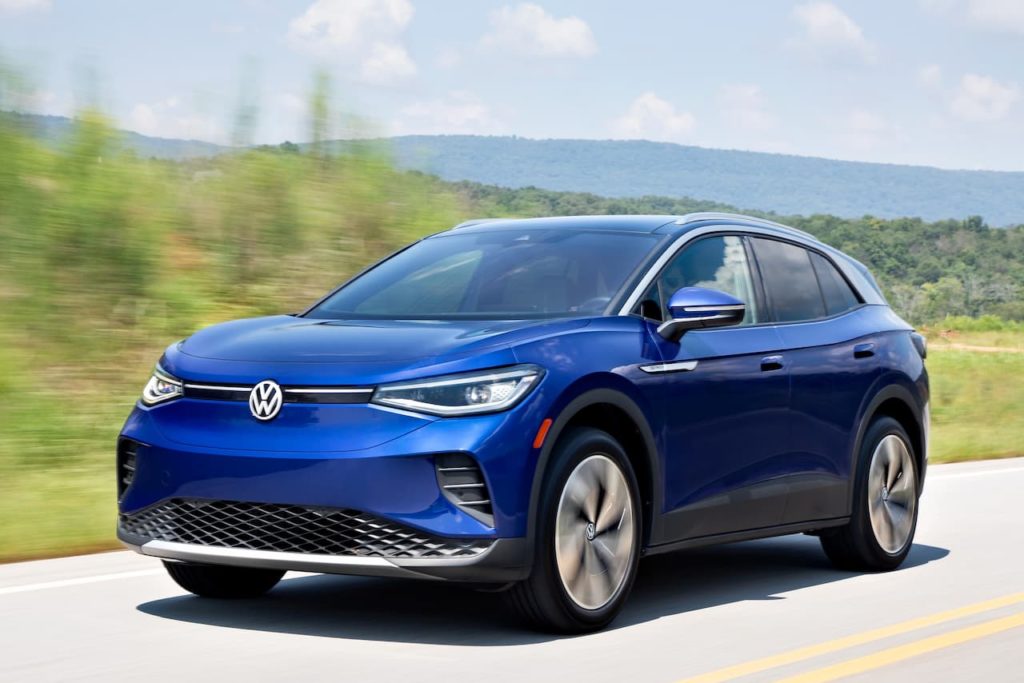
Volkswagen tackled the dieselgate adversity head-on by radically shifting its focus towards EVs with its ID. range, based on the Modular Electric Drive Matrix (MEB) platform. VW has also significantly ramped up production capacities across the globe in the last decade to become one of the world’s largest electric car companies.
Carbon neutral mother plant
Volkswagen is on track to become carbon-neutral in the coming years. In Zwickau, Germany, its plant is the world’s first 100% carbon neutral conversion facility. Also, it has a strong presence in China and runs under the SAIC-Volkswagen and FAW-Volkswagen joint ventures. The SAIC Group is one of the world’s largest EV makers.
China is the world’s largest EV market, so having a manufacturing facility in China was a no-brainer. VW’s facilities in Foshan and Anting in China have a combined annual production capacity of 600,000 units. The FAW-Volkswagen ID.4 Crozz and the SAIC Volkswagen ID.4 X are manufactured here.
VW’s first greenfield MEB plant is powered entirely by renewable energy, thanks to 200,000 square meters of solar panels, which produce 9000 MWh annually. For the U.S. market, the ID.4 will be manufactured at the brand’s Chattanooga, Tennessee facility from fall 2022.
MEB platform
The brand’s Modular Electric Drive Matrix (MEB) platform is scalable for use across different vehicles. By 2029, 20 million VW Group EVs are expected to run the MEB architecture. Moreover, VW Group brands like Audi, Skoda, and Seat also use the platform. What’s more, VW has already envisioned its next-generation EV, the VW Trinity project, underpinned by the Scalable Systems Platform, which would make it highly digital.
The ID. range has capable powertrains. Let’s take the example of the VW ID.4. The SUV is offered with AWD and RWD drive layouts. The RWD ID.4’s electric motor makes 201 hp and 229 lb-ft, while the AWD version comes with a 295 hp and 229 lb-ft set-up. Moreover, VW has improved range and charging for the 2022 ID.4. The range is up from 260 to 280 miles (EPA) on the RWD variant and DC charging capacity is up from 125kW to 135kW. The ID.4 starts at USD 40,760 (MSRP).
Strong Q1 2022 sales figures
The VW Group’s BEV sales soared by 65% in Q1 2022 compared to Q1 2021. The group delivered 99,100 BEVs to customers in the first three months of 2022, compared to 60,000 units sold in the same period last year.
The VW Group sold 452,900 BEVs in 2021 worldwide. The group also sold 309,500 PHEVs. VW Group is the European leader in market sales and in the U.S., it holds a 7.5% market share for EVs. Moreover, sales were strong in major markets like China, where VW sold 92,700 BEVs in 2021, while only 17,000 BEVs were delivered in the United States. The ID.4, ID.3, e-up! were popular mass-market models.
119,650 ID.4 SUVs were sold in 2021, followed by 75,500 ID.3s and 41,500 units of the e-up!. Audi led the charge among premium cars by selling 81,894 vehicles, a 57.5% growth compared to 2020. Audi’s EV range, which includes the e-tron SUV, e-tron Sportback, e-tron GT, RS e-tron GT, Q4 e-tron, and the Q4 e-tron Sportback, is well-received among premium EV buyers. The group brands play a big role in making VW one of the world’s largest electric car companies.
Volkswagen EVs: ID.3, ID.4, e-up!, ID.Buzz (mid-2022 for EU, 2024 in the U.S), ID.5 (2022), ID.2 (2026)
Q1 2022 BEV sales: 99,100
Market cap: USD 117.6 billion (June 2022)
BYD
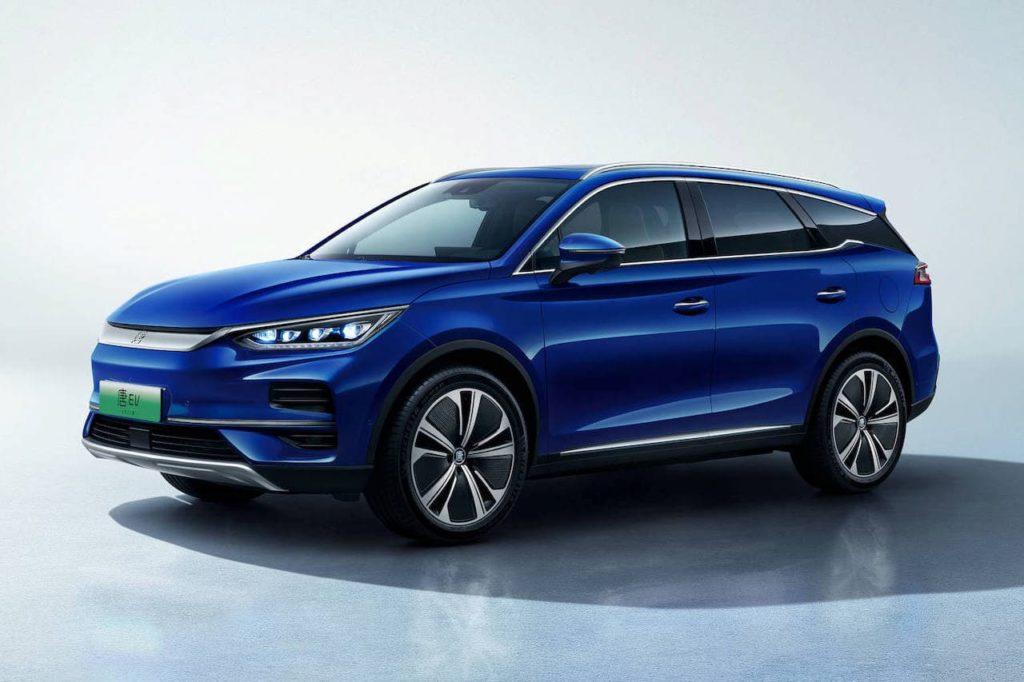
BYD was founded in the same year as Tesla (2003), and it has witnessed exponential growth in its home market of China. Warren Buffett has also invested in the Chinese automaker. Some of China’s best-selling EVs in 2021 include the Qin sedan, the flagship Han saloon, Song mid-size SUV, and the Tang SUV that seats seven (Tang EV is also sold in Norway). BYD has also made headlines for its blade battery technology which debuted on the Han EV in 2020. The technology is developed by FinDreams Battery, a subsidiary of BYD.
Most importantly, BYD has become the first automaker in the world to stop the production of pure ICE-powered vehicles and focus completely on EVs and electrified vehicles.
BYD Blade Battery
Talking about the BYD Blade Battery, instead of multiple stacks of cells, singular cells are arranged together in an array and then inserted into the battery. BYD says this optimizes space utilization and improves cell density, enhancing range compared to regular lithium-ion phosphate block batteries. BYD conducted rigorous tests on its blade battery, subjecting it to nail penetration and rigidity tests. The batteries could withstand the trials and did not reach high temperatures either.
On June 7, 2022, BYD surpassed VW in terms of market cap. Its valuation rose to over 128 billion, compared to VW Group’s 117.6 billion.
BYD Q1 2022 sales
The brand sold 143,224 electric vehicles in Q1 2022, posting a growth of a staggering 271% year-over-year, according to InsideEVs. Despite the strict lockdowns in China since the start of 2022, BYD has maintained a stellar sales performance.
BYD topped the EV sales leaderboard in China in 2021, outselling Tesla. While BYD sold 320,810 EVs in China, Tesla sold 473,000 cars in 2021. But if you include BYD’s plug-in hybrid and commercial electric range, the brand’s total sales exceeded Tesla’s by a long way. The Chinese carmaker’s BEV and PHEV sales were over 600,000 in China, making it one of the world’s largest electric car companies. The Yuan electric SUV (BYD Atto 3) was among the more popular models with 41,000 units sold, while the flagship Han accounted for 10,000 units.
The BYD Seal is the company’s next launch that competes with the Tesla Model 3 in China. The BYD Seagull and the BYD Sea Lion are the future launches from the Ocean series of electric cars.
BYD EVs: e3, Tang EV, Dolphin, Han EV, Yuan Plus (Atto 3), Seal (2022)
Q1 2022 BEV sales: 143,224
Market cap: USD 128 billion (June 2022)
Hyundai Motor Group
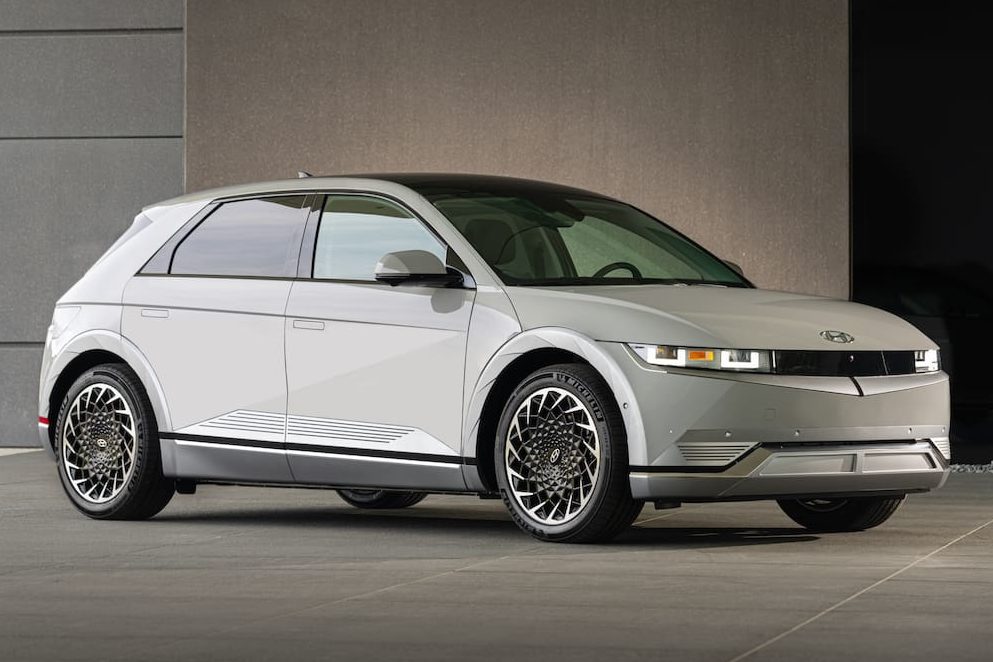
In the early 2000s, Hyundai was a South Korean carmaker that made simple or boring family cars. Hyundai Motor Group (HMG) reshaped its identity in the previous decade by making premium vehicles and leapfrogging competition with its future-proof powertrains. Hyundai and Kia have been offering conversion BEVs for a while now with the Kona Electric and the Niro EV, but the brand’s dedicated EV platform, the E-GMP, is the real deal. Hyundai today is among the world’s largest electric car companies.
Game-changing platform
E-GMP stands for Electric Global Modular Platform. It comprises the vehicle’s chassis, including the battery, motor, and electrical systems, and its scalable wheelbase allows it to form the backbone of many different segments of cars. E-GMP has been developed to accommodate large batteries that offer over 500 km range, approximately. The platform also supports 400v and 800v charging. E-GMP-based cars like Hyundai Ioniq 5 and the Kia EV6 take only 18 minutes to charge using DC fast chargers.
Moreover, the platform uses an ultra-high-strength steel frame, 8-point battery mounts to absorb structural impacts during crashes, and bidirectional charging to external power devices using the vehicle’s battery.
HMG sales in 2021
Hyundai registered a 20% growth for its BEVs in 2021. HMG sold 184,660 BEVs last year. Hyundai also sold 9,620 FCEVs (fuel cell electric vehicles) across the globe, led by the Hyundai Nexo. Regarding E-GMP sales, Hyundai sold around 66,000 Ioniq 5s while Kia managed to deliver over 30,000 EV6 units since production began in March 2021. Genesis also sold over 1,000 GV60s in 2021, taking sales of E-GMP platform-based cars to nearly 100,000 in just ten months.
Ioniq 5 sales have been growing in the United States in 2022, and is now the third best-selling electric SUV in the country behind the Model Y and the Mustang Mach-E. The EV offers an EPA estimated range of 303 miles and two powertrain options — 225 hp RWD or 320 hp AWD. It offers premium features like active grille shutters, flush door handles, augmented reality heads-up display, and more.
In Q1 2022, HMG sold 81,744 BEVs worldwide, according to InsideEVs. Moreover, electrified vehicle sales have increased 241% in Q1 2022, compared to Q1 2021. HMG however, hasn’t release the number of units sold with respect to electrified vehicles.
EV Production to boost significantly
At the 2022 CEO Investor Day forum on March 3, 2022, Hyundai Motor CEO Jaehoon Chang revealed the brand’s electrification plan to bolster Hyundai’s position as one of the world’s largest electric car companies.
11 Hyundai and 6 Genesis BEVs will be introduced by 2030. The brand will also present its next-gen platform, the Integrated Modular Architecture, in 2025. Targets look ambitious as the brand plans to sell 1.87 million BEVs by 2030. Adding a new manufacturing base is also under consideration. Currently, Hyundai EVs are made in South Korea and the Czech Republic. The new Indonesia plant is also set to begin BEV production this year. Meanwhile, Kia has said that it will launch 14 EVs by 2027, including two electric pickup trucks.
HMG EVs: Hyundai Ioniq 5, Kona Electric, Ioniq Electric, Kia EV6, Genesis GV60, and more
Q1 2022 HMG BEV sales: 81,744 (Hyundai, Kia and Genesis models)
Market cap (Hyundai Motor Company): USD 30.77 billion (June 2022)
| World’s largest electric car companies | Q1 2022 BEV sales | Market cap in June 2022 |
| Tesla | 310,048 | USD 728 billion |
| SAIC Motor (Jan-May) | 301,451 (including PHEVs) | USD 31.2 billion |
| Volkswagen Group | 99,100 | USD 117.6 billion |
| BYD | 143,224 | USD 128 billion |
| Hyundai Motor Group | 81,744 (approximation) | USD 30.7 billion (Hyundai Motor Company) |
Featured image source: Tesla
